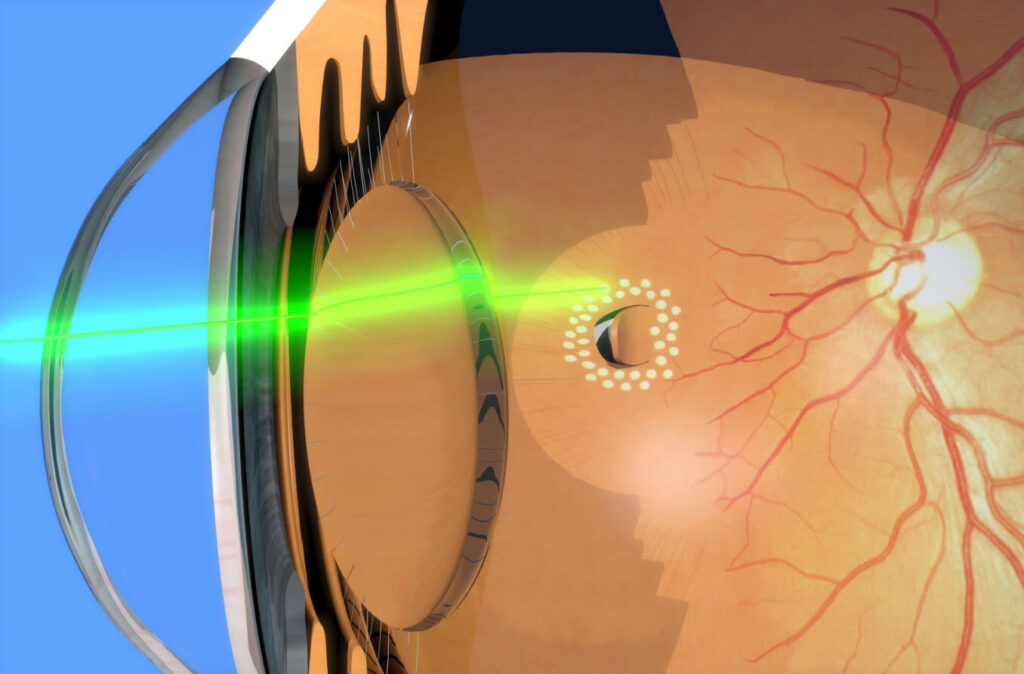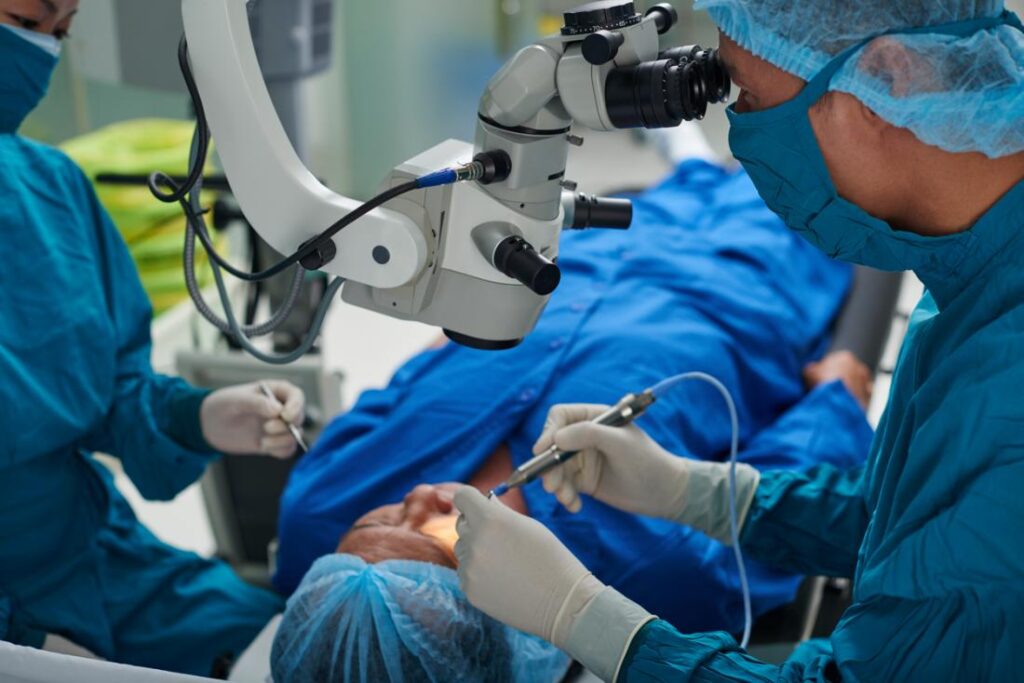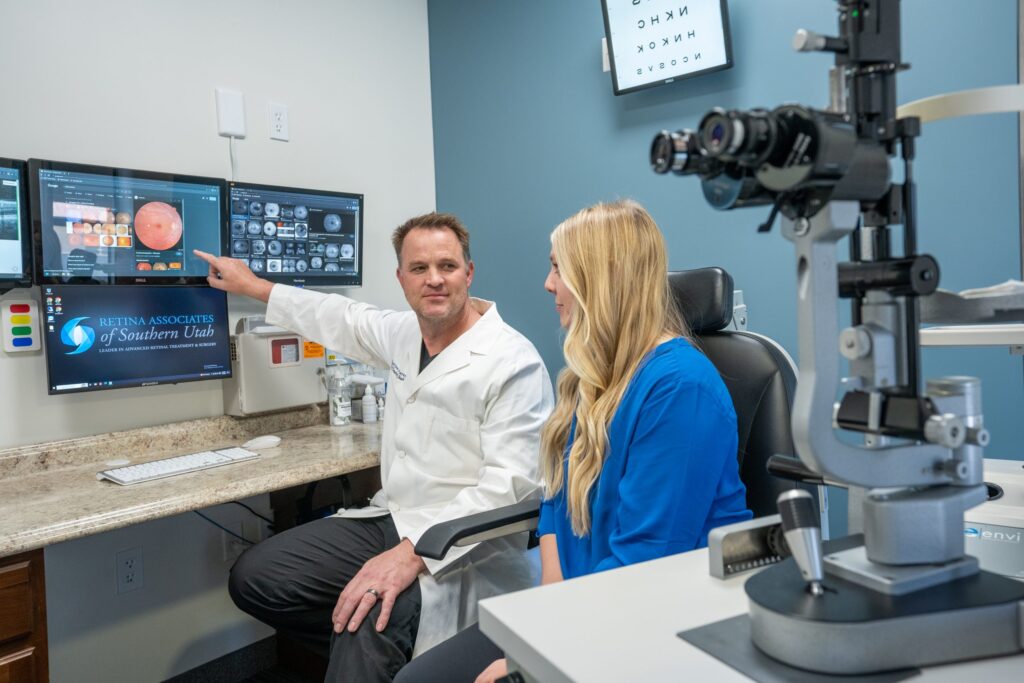Cataract surgery is a common procedure that helps restore clear vision in individuals with cataracts, a clouding of the eye’s natural lens. While the surgery itself is relatively quick and safe, proper post-operative care is essential for a smooth healing process. By following these recovery tips, you can ensure optimal healing and avoid potential complications.
Understanding Cataract Surgery
Cataract surgery is a common and highly effective surgical procedure that aims to restore clear vision in individuals suffering from cataracts. Cataracts occur when the natural lens of the eye becomes cloudy, leading to blurred vision and difficulty seeing clearly. During cataracts surgery, the clouded lens is carefully removed and replaced with an artificial intraocular lens (IOL) to improve vision quality.
It is important to note that cataract surgery is one of the most commonly performed surgeries worldwide, with millions of procedures conducted each year. The advancements in surgical techniques and technology have made cataract surgery a safe and routine procedure, with high success rates and minimal risks. Click here for debunking myths about LASIK eye surgery.
What is Cataract Surgery?
Cataract surgery is typically performed on an outpatient basis, meaning patients can return home on the same day of the procedure. The surgery is usually done under local anesthesia, ensuring that the patient is awake but does not feel any pain during the surgery. The surgeon makes a small incision in the eye to access the clouded lens, which is then broken up and removed using ultrasound technology. Once the cataract is removed, the artificial IOL is implanted to replace the natural lens.
Patients may experience improved vision almost immediately after cataract surgery, with full recovery expected within a few weeks. It is essential for individuals undergoing cataract surgery to follow their surgeon’s post-operative instructions diligently to promote healing and prevent complications.
The Importance of Post-Operative Care
After cataract surgery, proper post-operative care is crucial for a successful recovery. Patients are advised to attend follow-up appointments with their ophthalmologist to monitor healing and ensure that the eye is healing properly. It is common for individuals to experience mild discomfort, itching, or sensitivity to light after surgery, but these symptoms typically subside within a few days.
In addition to attending follow-up appointments, patients are encouraged to avoid strenuous activities, refrain from rubbing their eyes, and use prescribed eye drops as directed. By following these guidelines and adopting healthy habits, individuals can optimize their recovery process and enjoy clear vision following cataract surgery.
Immediate Post-Surgery Care
The immediate period after cataract surgery requires special attention to ensure proper healing and minimize discomfort. Here are some important guidelines to follow:
After cataract surgery, your eye will be particularly sensitive and vulnerable as it heals. It’s crucial to protect your eye from any potential harm during this delicate time. Your ophthalmologist will provide you with specific instructions on how to care for your eye post-surgery, including how to properly clean and protect it from irritants.
First 24 Hours After Surgery
Take it easy during the first 24 hours after surgery. Resting and keeping your head elevated can help reduce swelling and promote healing. Avoid any strenuous activities, bending over, or lifting heavy objects.
During this initial recovery period, it’s essential to follow your doctor’s orders diligently. Proper rest and relaxation are key components of allowing your eye to heal effectively. Be sure to attend any follow-up appointments scheduled by your ophthalmologist to monitor your progress and address any concerns.
Common Symptoms and How to Handle Them
It is common to experience mild discomfort, itching, and a gritty sensation in the eye after cataract surgery. Your ophthalmologist may prescribe eye drops or ointments to alleviate these symptoms. Avoid rubbing or touching the operated eye, as this can disrupt the healing process.
It’s important to communicate openly with your healthcare provider about any symptoms or concerns you may have during your recovery. They are there to support you through this process and ensure that you have a smooth and successful healing journey.

Long-Term Recovery Strategies
Recovery from cataract surgery extends beyond the immediate post-operative period. Here are some strategies to support long-term healing:
It is important to note that the healing process after cataract surgery is a gradual one, and taking care of your eyes in the long term is vital for optimal recovery. In addition to the immediate post-operative care, there are several key factors to consider to ensure the best possible outcome for your vision.
Eye Protection and Hygiene
Protecting your eyes from dust, wind, bright sunlight, and injury is crucial during the recovery phase. Wear sunglasses or a wide-brimmed hat when outdoors, and avoid swimming or activities that may expose your eyes to contaminants. Additionally, it is recommended to use protective eyewear when engaging in activities that pose a risk to your eyes, such as sports or DIY projects. Ensuring good eye hygiene is also essential in preventing infections and promoting healing. Be diligent about washing your hands before applying eye drops or touching your eyes to reduce the risk of introducing harmful bacteria.
Medication and Eye Drops
Strictly adhere to your prescribed medication regimen, including any eye drops or ointments. These medications help prevent infection and reduce inflammation. It is crucial to follow the instructions provided by your ophthalmologist and use the drops as directed. In addition to prescribed medications, maintaining a healthy lifestyle with a balanced diet rich in vitamins and minerals can also support your eye health in the long run. Adequate hydration and regular eye check-ups are equally important to monitor your progress and address any concerns promptly.
Lifestyle Adjustments for Optimal Healing
Adopting a healthy lifestyle can promote optimal healing and improve overall eye health. Consider the following:
When it comes to eye health, the benefits of a balanced diet cannot be overstated. Incorporating a variety of fruits and vegetables into your meals provides essential vitamins and minerals that support eye function. Foods rich in antioxidants, such as leafy greens, carrots, and berries, can help protect your eyes from harmful free radicals. Additionally, including sources of omega-3 fatty acids, like fish and nuts, in your diet can further enhance eye health by reducing inflammation and supporting the structure of the eye.
Hydration is key to maintaining healthy eyes. Drinking an adequate amount of water not only helps keep your body hydrated, but it also plays a crucial role in maintaining the moisture levels in your eyes. Dehydration can lead to dry eyes and discomfort, so be sure to stay hydrated throughout the day.
Exercise and Physical Activity Guidelines
Regular exercise is not only beneficial for your overall health but can also have a positive impact on your eye health. Engaging in physical activities that promote blood circulation, such as walking or light cardio exercises, can help ensure that your eyes receive a steady supply of oxygen and nutrients for optimal healing and function.
However, it’s important to strike a balance and avoid activities that may strain your eyes, such as prolonged screen time or heavy lifting. If you are considering starting a new exercise regimen, especially post-eye surgery, consulting with your doctor is advisable to ensure that the activities you choose are safe and beneficial for your healing process.

Regular Follow-ups and Monitoring
Regular follow-up appointments with your ophthalmologist are crucial for monitoring your healing progress and ensuring the surgical outcome is as expected. These appointments allow your doctor to detect any potential complications early on and provide the necessary interventions.
During these follow-up appointments, your ophthalmologist will conduct a series of tests to assess your vision and overall eye health. These tests may include visual acuity tests, intraocular pressure measurements, and examinations of the retina and optic nerve. By closely monitoring these parameters, your doctor can track your progress and address any issues promptly.
Importance of Regular Eye Check-ups
Even after your initial recovery period, it is important to continue scheduling regular eye check-ups. Routine eye examinations help detect any changes in your vision or eye health and allow for timely intervention if needed. Don’t skip these check-ups, as they play a vital role in maintaining good eye health.
During these check-ups, your ophthalmologist will also evaluate the effectiveness of your post-operative care regimen. They may provide guidance on eye drops, activity restrictions, and other aspects of your recovery. This personalized care ensures that you are on the right track to achieving optimal results from your cataract surgery.
Understanding Warning Signs of Complications
While cataract surgery is generally safe, it is crucial to be aware of potential complications. Contact your ophthalmologist immediately if you experience severe pain, sudden vision loss, increased redness or discharge from the eye, or any other concerning symptoms. Prompt medical attention can help prevent serious complications.
It is essential to follow your doctor’s post-operative instructions diligently to minimize the risk of complications. This includes attending all scheduled follow-up appointments, using prescribed medications as directed, and protecting your eyes from injury or infection. Your commitment to these guidelines is key to a successful recovery.
By following these recovery tips and maintaining regular communication with your ophthalmologist, you can ensure a smooth healing process after cataract surgery. Remember to be patient with your recovery and give your eyes the time they need to heal. With proper care and attention, you can enjoy improved vision and a better quality of life.

